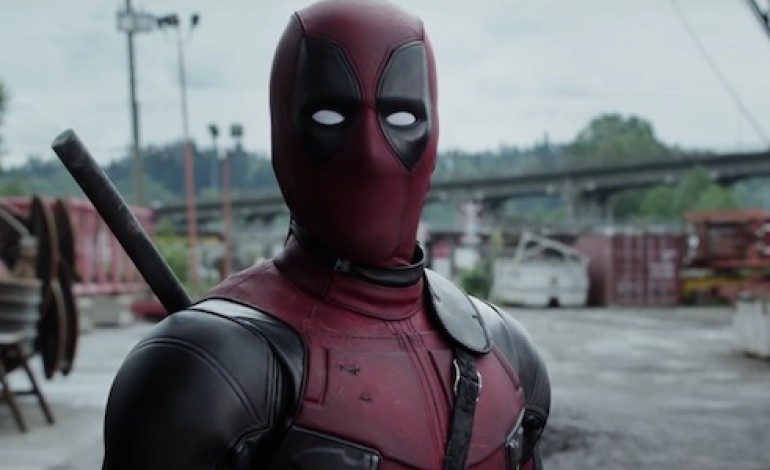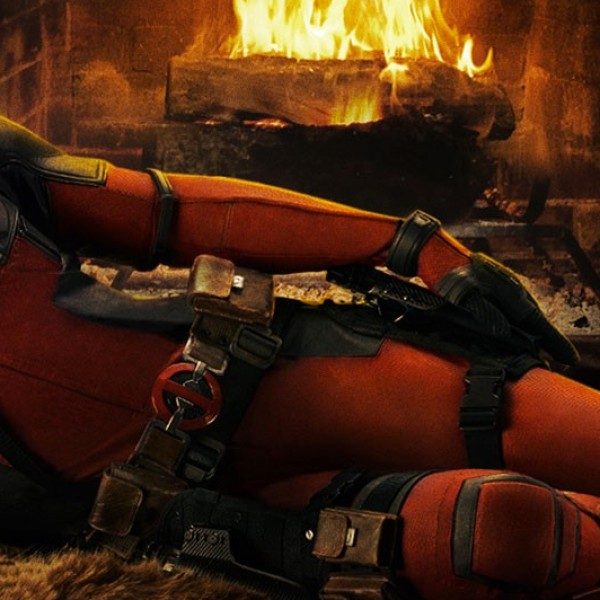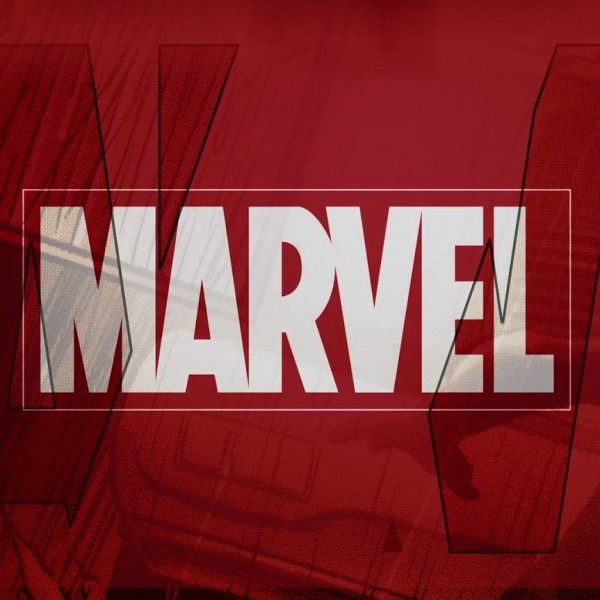

The following contains spoilers for Deadpool. You have been warned.
The anarchic Marvel adaptation Deadpool roared onto movie screens over the President’s Day weekend and snagged a box office take of $150 million, quickly cementing itself (as well as star/champion Ryan Reynolds) as a potentially hot franchise player for years to come. James, Erik and mxdwn’s Editor-in-Chief Ray Flotat joined forces to dissect the movie that’s on everyone’s mind.
James: So Deadpool conquered the box office this past weekend and quickly asserted itself as the first “big deal” movie-wise of 2016. Before we get into the movie itself, to get started, I was just wondering if either you had a strong relationship with the character beforehand and if that presented any expectations for the movie?
Erik: As an avid (though somewhat lapsed in recent years) comic book reader, I’m actually quite familiar with Deadpool. I liked the film’s interpretation of the character, though I was going to be happy regardless of the film’s overall quality just because of all the superheroes (DC, Marvel, or otherwise) this was the one I honestly never thought I’d live to see on the big screen. I just didn’t think any major studio would be willing to gamble on Deadpool’s particular brand of humor, and things like X-Men Origins: Wolverine just seemed to confirm my fears. However, against all odds and logic, Ryan Reynolds, director Tim Miller, writers Rhett Reese and Paul Wernick, and co. managed to pull together something we’ve been trained not to believe in: a highly profitable R-rated superhero film. Kudos and golf claps all around.
Ray: Good points. In direct answer to your question James, I’ve always been familiar with the character, though not a huge fan. I remember his debut in X-Force care of his creator Rob Liefield way back in the 90’s (spoiler I was a comic book dealer with my father in those days), but I was never a huge fan. It was almost something forgotten to me all those years back. I had completely removed the character from my mind, and it was only in the recent explosion of comics and comic characters that made me become aware of the character’s resurgance and actually bother to investigate the immortal question, “Why?” Teenagers like violence and shit talking. Deadpool is the perfect mix of both. But beyond Harley Quinn, nobody seems to draw fanboys out of the woodwork like this guy. That being said, this all came off pretty much like it should have given the character: Ryan Reynolds’ wet dream of a role. Equal parts constant witticisms and snark and over-the-top violence. Honestly, to do it right, it had to be those in overwhelming brutality, and that’s what it was in spades. Funny too.
James: As someone who was never into comics, my way into superhero land is purely through the movies. I saw X-Men Origins: Wolverine but can’t say I remember a thing even though Reynolds first debuted his Wade Wilson there. Moving forward into the movie itself, sure, it does seem like a minor miracle that Fox went all in because this character is so gritty, so hard-edged and so R-rated. I suppose (and I certainly understand that my ignorance to the character may be partial to this) what I found so disheartening about the movie itself was once you removed all the vulgarity and dirty words, Deadpool still felt pretty familiar in the realm of superhero (or this case “anti-superhero”) origin stories.
Erik: I do agree with you on that point. Don’t get me wrong, I did love the movie, but is very by the numbers storyline took it down from an A+ to a B. They pretty much hit all the points of a basic origin story, and yes at points it did comment or poke fun at them, but it still pretty much played them straight. For god’s sake, we even had the typical “hero rescues his love interest from the villains” third act. I was hoping they would mix up a little bit (for instance, Wade’s love interest, Vanessa Carlysle- played by Morena Baccarin, shares her name with a Marvel superhero, so it could have been cool if the main villain Ajax- played by Ed Skrein- either turned her into a superhuman, or she reveals she has power and joins Wade in the final fight), but it in the end it wasn’t all that different from any of the Spider-Man films. I realize there’s an argument to be made that with all the insanity coming from the Deadpool character, a crazy plot would be too much, but I disagree. I’ve read some Deadpool comics in which the story was just as nuts as the title character – for instance, in a more recent run, Wade had to save America from a horde of immortal zombie dead presidents – and they worked just fine. Hopefully the writers play it a little less safe with the inevitable sequel.
Ray: Definitely a standard origin story. That being said, didn’t bother me so much. Except for Todd McFarlane’s Spawn (which only saw true life on HBO in the late 90’s) there really hasn’t ever been a superhero story shown in the public that so prominently featured sex and violence. The main difference being Spawn was all about reveling in the darkest corners of the battle between good and evil and really needed to have a convincing and poignant story to base it all on. This one is more like the Clive Owen-fronted Shoot ‘Em Up, almost a neo-nihilistic caricature of what a superhero could be. Right down to the last moments where someone gets aced right as another character is giving a heartfelt speech. The biggest trait this had to its name was those factors that made it different, and given that it was anchored by such a big studio like Fox, it needed to have some tennants of a man people could identify with. Those violent qwirks and the nonstop Groucho Marx-isms he sputters through every scene are what the fanboys were hoping for.
James: I’m pretty bored at this point with the tried and true Marvel (and likely soon to be DC) formula – all there movies look, sound and feel the same; it’s all getting very dull. I have no problem with sexing up or rejiggering the carnage in comic-book adaptations, I just don’t think Deadpool went far enough here. The violence was cartoony, but not exactly inventive and while some of the sexuality on display here was far more frank than anything The Avengers could ever deal with, it still felt a little safe, especially since Reynolds, in all his hyper-manic verbal commitment to the character, seemed game to push Deadpool well over the edge. I’ve read in certain corners that in the comics the character is pansexual – something that might have been pretty interesting to see on film. Yet, aside from a few jokes here or there that could either be seen as gay panic/baiting, his true love is Vanessa and the character is presented as completely hetero-normative.
Erik: To be fair, if any comic book adaptation was going to push the boundaries of depictions of sexuality in big budget films, I don’t think it was ever going to be Deadpool, and I don’t think it’s really the right one to do it. I can assure you, in the comics Deadpool’s sexual prefrences, if he has any at all (it’s really up to however the writer wants to portray him) are taken about as seriously as anything else he deals with. However, if they really wanted to do some boundary pushing, they could bring in Northstar (a gay male mutant with a husband) or Destiny (Mystique’s female lover who was originally intended to be the mother of the shape shifter’s son, Nightcrawler – take a minute, you’ll figure it out). But yeah, if there’s anything movie studios fear in regards to their big budget franchises, it’s changes from the norm. So, yeah, a simple R-rating for something from the Marvel universe (though not the Marvel Cinematic Universe, because we’ve different studios can’t get along) may be a baby step, but it’s the best we’re going to get for now. I just hope it gets us R-rated installments of other superhero film adaptations that could use a little added maturity (e.g. Wolverine, Ghost Rider).
Ray: And that’s the crux of the situation with superhero movies. Die hard fans of the genre are in hog heaven right now, slurping up everything that’s coming their way. Non die hard fans are just kind of over it. Ultimately, it’s most impressive of this particular film a.) that it got made in the first place and b.) that it managed to be so successful as an R-rated film. For whatever reason, films with this much adult content, just never seem to go big like this one did. I’m just happy that it made me laugh numerous times. Maybe my standards are odd for this kind of fair, but I was pleased that it wasn’t awful and off-model like the character’s usage in X-Men Origins: Wolverine was.
James: My gripes over the somewhat predictable outcome here come because it felt in the very first shots of the film that maybe this would manage to breakout and be this mad, crazy R-rated experience. The opening title cards say “a film from some douchebag.” That’s kind of funny but sort of the most clever moment in the entire movie. Onward from the virtues of Deadpool’s R-rating, was there anything about the story, character development or the performances that particularly stood out? I thought Reynolds applied his snark to good effort but got kind of bored with the performance as the story moved forward. Also, are Marvel villains ever interesting?
Ray: I absolutely loved that usage of the Juice Newton (“Angel in the Morning”) song in the opening credits. Set the tone for the whole experience quite. Speaking to your point James, it’s too seldom, but that’s why they’ve banked their entire arc films on the best one they have, Thanos. That won’t factor into any X-Men/Deadpool shenanigans, of course because of rights issues. It is all a valid point in a meaningful dissection of the movement. For whatever reason, I find myself on the side that was happy to see another go’-round for a hero origin story, and didn’t mind the treading familiar ground. The one thing I find myself thinking (and lo, do I wish I had the numbers to go with this) was taken back to the 50s, wasn’t nearly two thirds of every movie made at that time either a western or a musical? Have we come anywhere close to that percentage block with these yet? But, no doubt. For those that aren’t wild about a somewhat teenage (or young adult) discovering how they can punch through walls or, well, triumph over X problem, it must seem to have been tread plenty lately these past 10 years.
Erik: Marvel villains can be extremely interesting; it all depends on how they’re written. The problem with most of these superhero films (aside from, in my opinion, Ultron in the second Avengers) is, unless the character’s name is Loki, the writers don’t seem to be trying to give them any depth or motivations beyond, “I hate this thing, I want to destroy it, and no one will stop me.” On the other hand, the two Marvel Netflix shows, Daredevil and Jessica Jones have had some of the most interesting super villains ever seen in any medium (yes, I’m including Heath Ledger in the Dark Knight when I make that statement). And hey, you want progressive portrayals of sexuality? There are several gay and bisexual characters (some even in happy, functional relationships) in the current television shows The Flash and Arrow. But, I guess (as demonstrated by shows like Breaking Bad and Fargo) we just have to accept that mainstream television is going to be a few steps ahead of mainstream film.
James: That’s particularly dismaying considering many of the shows you mentioned are broadcast on networks that have far harsher guidelines on terms of content than Deadpool has to contend with. And perhaps, I was hasty in judging the entire villainous flock in the Marvel fold considering the terrific recent use of Vincent D’Onofrio in the Netflix run of Daredevil but Ajax seemed a particular non-entity. While we agree in certain ways that Deadpool may have played it a little too safe, the performance of Ryan Reynolds seemed anything but. What was your impression?
Erik: I don’t have any real specific praise for Reynolds’ performance other than it was great. But how could I have expected anything else. Reynolds has done interview after interview talking about how much he loves the character and how much of a dream role/project this was for him – hell, he only took bastardized version of the role in X-Men Origins: Wolverine because he was afraid it would be his only opportunity to play Deadpool. And I think that may have been a key factor in this film’s success: the fact the lead, the face of the film believed in it. You listen to or watch some interviews with some actors who play comic book characters, and you realize (regardless of how well they did in the role) that in the end it’s just another job and paycheck for them. I think what maybe drew people to this oddball film, who normally wouldn’t give such things a chance was Reynolds’ confidence and his belief in the character and project. Not too long ago, I was listening to an interview with Freddie Prinze Jr. on Chris Jericho’s podcast. They got to talking about the cartoon show, Star Wars Rebels (which Prinze voices a character on), and Prinze made it perfectly clear what a massive Star Wars fanboy he is. And his passion for the show got me a bit excited about it (I guess it helps that I’m a bit of a fanboy myself). So there may be something to the idea of adults getting to work on or with things they were fans of as a kid (for further proof, see: J. J. Abrams and The Force Awakens). And perhaps that’s what some of these average superhero films are missing: passion.
Ray: I couldn’t have said it better myself. This was one that was kind determinedly willed into reality. Nobody was in any rush to get this made, and the constant campaigning followed by the leak of the test footage a few years back helped set the stage for it to happen. It is something of a dream role for Reynolds’ as it’s a part that allows him to put the best of his trademark knack for quick-witted humor to full-throttled use. It is true that the character of Ajax was pretty lackluster as far as villains go, but I think here, it was a rare case where the audience wanted to revel in the hero rather than the antagonist. I’m just thrilled they got the character so right, and I’m betting the Deadpool fanboys are too.


